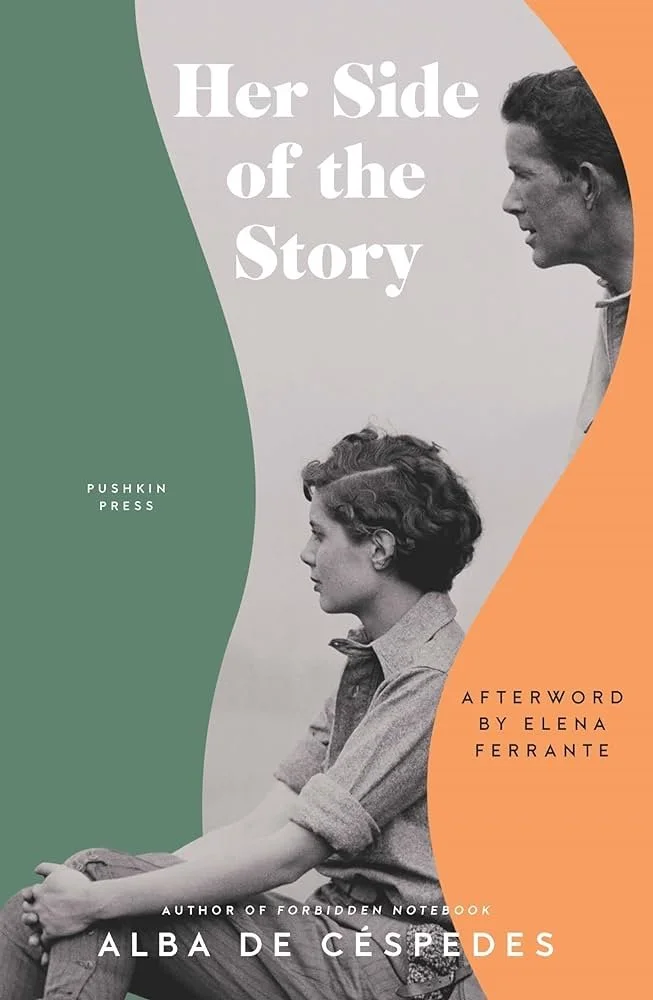Sandra Newman’s “The Heavens” begins like a quaint modern love story about two individuals named Kate and Ben who meet at a “rich girl’s party” in New York City in the year 2000, but it steadily turns into a highly innovative and entertaining meditation on time, psychology, memory, reality, ambition and destiny. When Kate goes to sleep she finds her mind has melded with that of Emilia Lanier, the Elizabethan-era poet, member of the minor gentry and the person some scholars speculate to be the “Dark Lady” referenced in Shakespeare’s more “bawdy” sequence of sonnets. And when Kate wakes again she finds the world around her has changed in small and large ways. She becomes convinced she must manipulate history to try to save the world and change the present for the better – even though she runs the risk of making things worse. This is such a surprising and playful tale as well as being one which asks us to seriously question our relationship to history. It’s also a totally original and beguiling time travel fantasy.
The only other book I’ve read by Newman is her previous novel “The Country of Ice Cream Star” which imagines a post-apocalyptic future run by warring tribes of children. The author seems especially adept at creatively considering how our society might radically morph due to cataclysmic events. It’s also notable how Newman consistently includes a diverse cast of characters in leading roles - from her previous novel led mainly by African American and Latino characters to this new novel where the heritage of her protagonists are mixtures of Bengali, Jewish, Hungarian, Turkish and Persian. Other than simply representing the full breadth of society, this inclusion of a range of ethnicities and nationalities deepen our consideration of how notions of history are often highly politicised. Newman’s heroines also challenge our ideas about the roles women play in shaping the past, present and future.
One of the most pleasurable things about “The Heavens” is the way Newman playfully undermines Shakespeare’s stature as the most revered figure in Western literature. She’s spoken in an interview about how she purposefully wrote this as a “disrespectful version” of Shakespeare and when he first appears in the novel he’s referred to as “Sad Will”. This isn’t to say Newman doesn’t admire Shakespeare’s plays and poetry, but it’s both challenging and refreshing to think about a version of reality where Shakespeare might have only been a footnote of history and considered a minor poet. Indeed there were probably many writers – especially female poets such as Emilia Lanier who is credited as being the first Englishwoman to assert herself as a professional poet – whose creative writing didn’t fully survive through the ages because of chance or the happenstance of not being lauded in the way Shakespeare’s work has been throughout the centuries.
In this way the innovative plot of this novel raises compelling questions about the nature of ambition. What are we willing to sacrifice for the sake of our own legacy or for the betterment of society? And what does the betterment of society even mean? One of the most fascinating characters of the novel is Sabine, the “rich girl” who throws the party at the novel’s beginning. She has a high level of insecurity in the way she gossips and manipulatively speaks about other characters. But she also has good-hearted (if questionable) munificent tendencies in how she instigates charitable causes whether it’s housing a huge variety of wayward individuals or attempting to foster a more harmonious society by purchasing an entire impoverished town. These strands of the story seem to be questioning how adept capitalism is at “solving” some of the most pressing dilemmas at the heart of our civilization.
Emilia Lanier as painted by Nicholas Hill
I’m so impressed by the way this novel carries out multiple timelines and strands of its story which weave in and out of various potential histories. She plays upon various thematically-linked pop cultural references including ‘Terminator 2’ and she notes in an interview how the genesis of the novel began a joke where it was pitched as “Highlander set in the era of Shakespeare”. Parts of the story also felt like it was playing with ideas similar to ‘The Matrix’ in questioning what version of reality is real. I think this novel also has a similarly creative approach to Joyce Carol Oates’ recent novel ‘Hazards of Time Travel’ in considering ideas of personal responsibility and how we shape history. And even though “The Heavens” contemplates so many bigger ideas and issues, it still works as an effective and compelling love story where we follow this couple’s unusual struggle to be together. It’s a novel that I know will warrant rereading in order to pick out the subtle way its characters and settings change through subtly manipulated different versions of the present.










